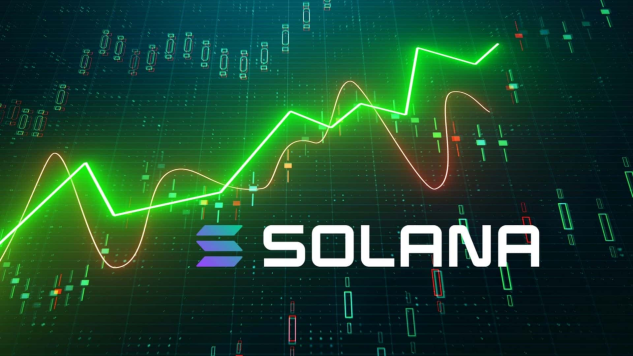
Solana's smart contracts and decentralized finance (DeFi) applications have performed well in the blockchain industry. Its high-performance and low-cost network provides an ideal operating environment for smart contracts and DeFi applications. This article will take a deep dive into Solana's smart contract architecture and DeFi ecosystem, analyzing its advantages and future development directions.
Solana's Smart Contract Architecture
Smart contracts are a core component of blockchain technology, which enables automated transactions and protocol execution by writing code. Solana's smart contract architecture is efficient, flexible, and secure.
Rust Programming Language: Solana's smart contracts are mainly written in Rust, a high-performance and secure programming language. Rust's memory safety and concurrent processing capabilities enable smart contracts to be executed efficiently and securely.
BPF Virtual Machine: Solana's smart contracts run on the BPF (Berkeley Packet Filter) virtual machine, a high-performance virtual machine. BPF was originally designed for network packet filtering, but the Solana team has extended it to enable it to execute smart contract code.
Anchor Framework: Anchor is a framework for writing and deploying Solana smart contracts, providing a simplified development process and rich tool support. With Anchor, developers can more easily write and debug smart contracts.
Solana's DeFi Ecosystem
Decentralized Finance (DeFi) is an important part of the Solana ecosystem. Through smart contracts, DeFi applications can realize decentralized financial services such as lending, trading, yield farming, etc.
Serum: Serum is the flagship DeFi project on Solana, providing a decentralized exchange (DEX) and derivatives trading platform. Serum uses Solana's high-performance network to achieve fast and low-fee trading services.
Raydium: Raydium is a DeFi platform that integrates AMM (automated market maker) and order book functions, providing efficient liquidity management and trading services. Raydium's innovation lies in its dual liquidity mechanism, which enables users to enjoy better trading depth and prices.
Mango Markets: Mango Markets is a decentralized lending and trading platform that provides efficient leveraged trading and lending services. Its core advantages are low latency and low fees, which enable users to efficiently conduct leveraged transactions and asset management.
Advantages of Solana DeFi Applications
Solana's DeFi applications have the following advantages:
High performance: Solana's high-performance network can process thousands of transactions per second, ensuring that DeFi applications can respond quickly to user needs.
Low cost: Solana's low transaction fees enable DeFi applications to trade and operate at a lower cost, lowering the user's usage threshold.
Security: Solana's smart contract architecture and consensus mechanism provide a high level of security to ensure the security of user assets and transactions.
Future prospects of Solana DeFi ecosystem
As the Solana ecosystem continues to expand, more DeFi projects will emerge in the future. Solana's high performance and low-cost network will provide an ideal operating environment for DeFi applications and attract more developers and users.
Technological innovation: Solana will continue to promote technological innovation, improve the performance and scalability of the network, and provide better support for DeFi applications. For example, the development of Solana 2.0 will further improve the network's processing power and support more decentralized financial services.
Ecosystem expansion: Solana will continue to attract more DeFi projects to settle in and enrich the diversity of its DeFi ecosystem. By providing more development tools and resources, Solana will create a better development environment for developers and promote the birth of more innovative applications.
Cross-chain interoperability: Solana will be committed to promoting cross-chain interoperability and promoting cooperation and intercommunication between different blockchain networks. Through cross-chain bridges and interoperability protocols, Solana will provide DeFi users with more convenient cross-chain transactions and asset management services.
Conclusion
Solana's smart contracts and DeFi applications have performed well in the blockchain industry. Its high-performance and low-cost network provides an ideal operating environment for smart contracts and DeFi applications. In the future, with the continuous advancement of Solana technology and the expansion of the ecosystem, Solana will provide more efficient, secure and decentralized financial services to global users.